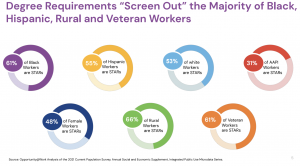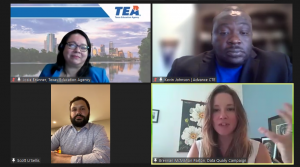This week President Biden released a much anticipated annual Congressional budget request for federal fiscal year 2024 (FY24). In addition, House Republicans have made changes to appropriations legislation rules that impact CTE funding. Advance CTE asks members to encourage their representatives in Congress to support much needed reforms to federal Pell Grants.
 President Biden Unveils FY24 Budget Request
President Biden Unveils FY24 Budget Request
Earlier today, President Biden released his long-anticipated federal fiscal year 2024 (FY24) budget request to Congress. The request proposes a $43 million increase for the Carl D. Perkins Career and Technical Education Act’s (Perkins V) basic state grant program– a proposed three percent increase over FY23 enacted levels. Advance CTE and the Association for Career and Technical Education (ACTE) have been advocating for a $400 million increase for this program to close an inflationary gap in funding that has widened considerably since FY04. Advance CTE will continue to pursue this goal with partners on Capitol Hill as the wider FY24 process unfolds later this year.
In addition, the Biden Administration has also renewed its request, first made last year, for $200 million in new funding for the creation of a new competitive grant program known as “Career Connected High Schools.” This initiative seeks to prioritize dual and concurrent enrollment, work-based learning, industry-recognized credentials and career counseling. Notably, Perkins V’s basic state grant program includes these priorities as eligible uses of funds and many states and local recipients currently use these resources to support these, and many more, opportunities for learners. Advance CTE has previously raised equity concerns regarding the Career Connected High Schools grant program–which the Administration estimated last year would only reach 32 programs in total–due to the limited scope and reach of a competitive grant program. Advance CTE and ACTE released a statement outlining these concerns following the formal publication of the budget.
Encouragingly, the budget request proposes significant new mandatory and discretionary funding to make two years of community college tuition free, so long as students and institutions meet certain criteria. The request also proposes a $25 million increase in funding for Student Success and Academic Enrichment Grants (Title IV-A of the Every Student Succeeds Act)– another key source of federal funding that can be used in support of CTE. Regarding the U.S. Department of Labor’s (DOL) portion of the request, the Administration is proposing $50 million in additional funding for registered apprenticeship programs, $200 million for the creation of a sector-partnership grant program and $11 million for the Workforce Data Quality Initiative– nearly double the FY23 enacted level. Elsewhere in this portion of the budget, the Administration has proposed additional investments to improve labor market information and to modernize outdated IT systems to better serve workers.
Additional details regarding the budget are expected to be available next week. The release of the budget formally begins the wider FY24 budget and appropriations process in Congress—an effort that is expected to be challenging in a divided Congress. As this process gets underway, Advance CTE will continue to work with partners on Capitol Hill to ensure the funding needs of the CTE community are reflected in final legislation.
House Republicans Ban Education Earmarks
For the last few years, members of Congress have been able to make specific funding requests in support of projects or initiatives related to their home state or district. Known formally as “community project funding” in the House and informally as “earmarks” elsewhere, these requests totaled $290 million in last year’s (FY23) spending package for career education initiatives. Last week, House Appropriations Chair Kay Granger (R-TX) announced new guidance for the upcoming FY24 budget and appropriations process. Among other notable changes, the guidance will not allow earmarks for the Labor-HHS-Education funding bill—legislation where Perkins V derives funding—in the upcoming budget and appropriations cycle. Elsewhere, the Senate has announced that it will still allow such requests this year which will be due April 13.
Encourage Congress to Support the Short-term Pell Grant Expansion
As shared previously, Senators Tim Kaine (D-VA) and Mike Braun (R-IN) reintroduced the Jumpstarting our Businesses by Supporting Students (JOBS) Act (S.161)– legislation that would expand federal Pell grant funding eligibility to high-quality, shorter-term CTE programs that meet certain criteria. Most recently companion legislation has been introduced in the House (H.R. 793) by Representatives Bill Johnson (R-OH), Lisa Blunt-Rochester (D-DE), Michael Turner (R-OH) and Mikie Sherrill (D-NJ).
This legislation is a longstanding federal policy priority for Advance CTE and is an important way to expand learner access to high-quality CTE program opportunities at the postsecondary level. Along with our partners at the Association for Career and Technical Education (ACTE), we encourage you to reach out to your members of Congress to ask them to support this vitally important legislation and to share this information with your wider networks.
To contact Congress about the JOBS Act, click here!
Steve Voytek, Policy Advisor


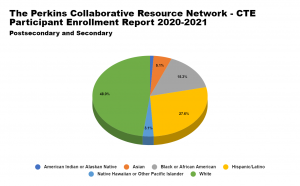
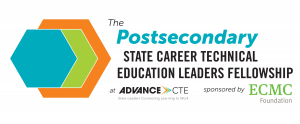
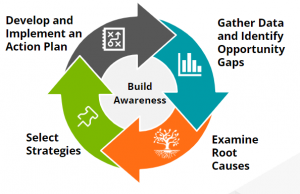 The workshop includes five major components that build upon the requirements — as well as opportunities — laid out in the Strengthening Career and Technical Education for the 21st Century Act (Perkins V) to help state and local leaders operationalize the commitments set in their state plans:
The workshop includes five major components that build upon the requirements — as well as opportunities — laid out in the Strengthening Career and Technical Education for the 21st Century Act (Perkins V) to help state and local leaders operationalize the commitments set in their state plans: 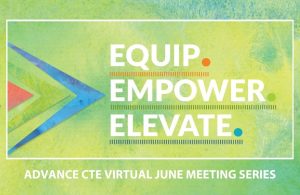 On June 22, Advance CTE hosted the third and final event in its three-part June Meeting Series. The day focused on the theme of “Elevate,” and offered knowledge about raising the profile of Career Technical Education (CTE), so that key stakeholders and the public support and engage with the field.
On June 22, Advance CTE hosted the third and final event in its three-part June Meeting Series. The day focused on the theme of “Elevate,” and offered knowledge about raising the profile of Career Technical Education (CTE), so that key stakeholders and the public support and engage with the field.  One practical tip Dennis offered: “Start your email subject line with the words ‘STORY IDEA.’” Something that simple can make him jump right to the email.
One practical tip Dennis offered: “Start your email subject line with the words ‘STORY IDEA.’” Something that simple can make him jump right to the email. 